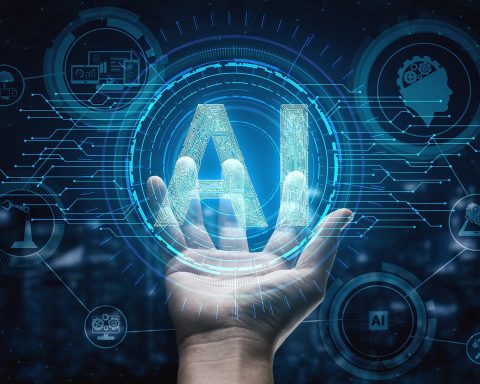During an economic forum at Stanford University, Nvidia’s Chief Executive Jensen Huang made a striking prediction: artificial general intelligence (AGI) could potentially surpass human capabilities in as little as five years. As the head of the world’s leading maker of artificial intelligence chips, Huang’s insights carry significant weight in the tech industry, particularly regarding the future of AI.
Huang’s assertion was prompted by a question about Silicon Valley’s longstanding ambition to develop computers capable of human-like thinking. He emphasized that the timeline for achieving AGI hinges on how the goal is defined. According to Huang, if the benchmark is the ability to pass human tests across various domains, AGI could arrive sooner than expected.
Speaking about the potential of AI to excel in diverse tests, Huang expressed confidence that within five years, AI systems could perform admirably across a comprehensive range of assessments. While current AI capabilities already enable passing tests like legal bar exams, challenges persist in more specialized fields such as medical diagnostics. Nevertheless, Huang believes that AI will overcome these hurdles in the near future.
However, Huang acknowledged that defining AGI remains a subject of debate among scientists, which poses challenges for engineers striving to achieve this milestone. The lack of consensus on how human minds function complicates efforts to engineer AI systems to emulate human-like intelligence.
Addressing concerns about the infrastructure needed to support the AI industry’s expansion, particularly in chip manufacturing, Huang stressed the necessity for additional chip factories, known as “fabs.” While acknowledging the need for more fabs, Huang highlighted the ongoing improvements in AI algorithms and processing capabilities. These advancements enhance computing efficiency, mitigating the demand for a disproportionately large number of chips.
Huang’s remarks shed light on the complex interplay between technological advancement and infrastructure requirements in the AI industry. As Nvidia continues to lead the charge in AI chip development, Huang’s insights provide valuable insights into the trajectory of AI development and its potential impact on various sectors of society.
In summary, Jensen Huang’s predictions underscore the rapid pace of AI evolution and the transformative potential of AGI. While uncertainties persist, Huang’s optimism about AI’s future capabilities offers a glimpse into a world where machines rival human intelligence in a multitude of tasks.










